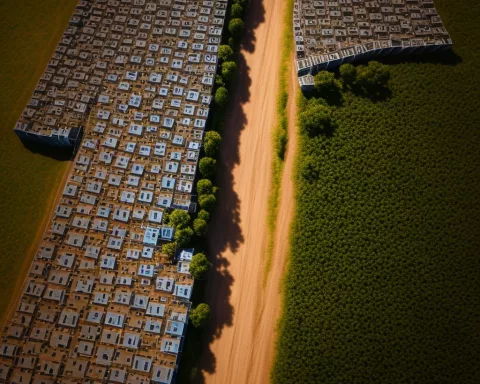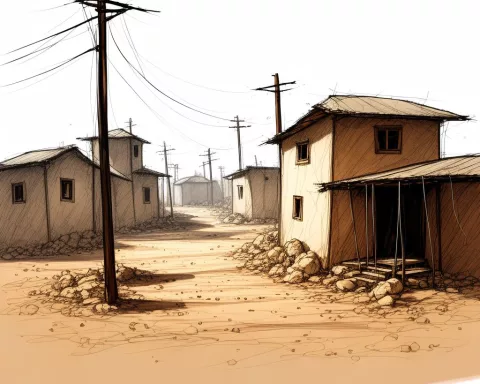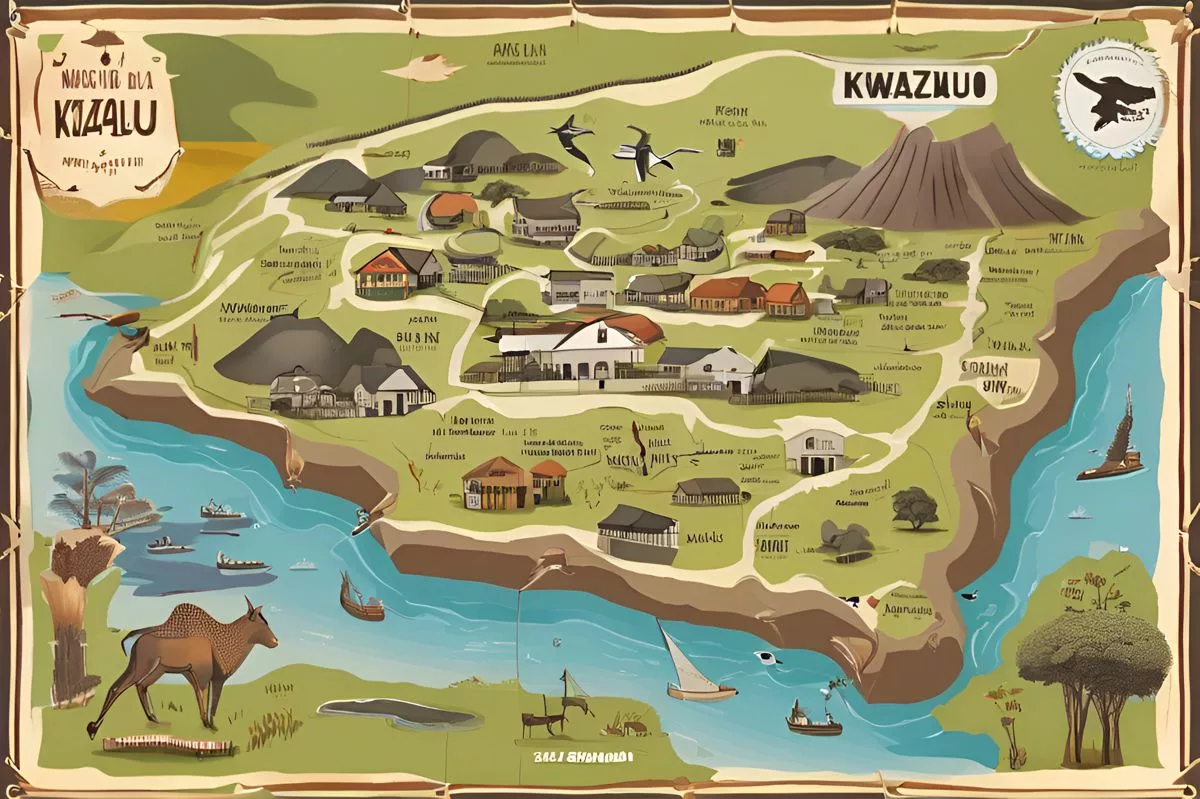The South African government has made significant progress in providing affordable housing and community infrastructure, despite challenges such as the lingering effects of apartheid-era spatial planning and corruption. Initiatives such as upgrading informal settlements and eliminating asbestos roofing have had a positive impact, and the commitment to inclusion of designated groups, such as women, is inspiring. The government remains resolute in reforming apartheid-era regulations and prioritizing vulnerable communities in its service delivery programs. Challenges remain, but progress has been made, and the commitment to uplifting the lives of the most vulnerable communities is evident.
What is the state of housing and community infrastructure in South Africa?
The South African government has made significant progress in improving the lives of its citizens through the provision of affordable housing and community infrastructure. Despite challenges such as lingering effects of apartheid-era spatial planning and corruption, government initiatives such as upgrading informal settlements and eliminating asbestos roofing have had a positive impact. The commitment to inclusion of designated groups, such as women, is inspiring.
South African Housing: Then and Now
In the interconnected world of today, the importance of affordable housing and community infrastructure is clear. The stirring words of Deputy Minister of Human Settlements, Honourable Pam Tshwete, at the NCOP debate in the South African Parliament emphasized this reality.
Tshwete painted a bleak picture of the pre-1994 South African inhabitants, living devoid of fundamental facilities like roads, houses, water, and electricity. Today, the democratic government’s earnest endeavours have culminated in improved life quality, showcasing well-constructed houses adhering to set standards and norms, meeting the diverse requirements of the community, including that of people with special needs.
This transformation goes beyond mere shelter provision. It signifies a comprehensive approach towards creating human settlements, fully equipped with societal facilities. As we approach the conclusion of the 6th administration, it is critical to acknowledge the remarkable progress and discern the obstacles yet to be surmounted.
Ground Realities and Government Initiatives
Minister Mmamoloko Kubayi’s contributions have been pivotal in comprehending the practical aspects of human settlements. She embarked on provincial tours to understand the lingering challenges and prioritized focus areas, such as unblocking of stalled projects, upgrading informal settlements, eliminating asbestos roofing and mud-houses, and strategizing social housing schemes to bring communities closer to economic prospects.
Despite the expanding informal settlements and commandeered buildings, remnants of the apartheid-era spatial planning, the democratic government remains resolute in reforming the Apartheid-era Spatial Development regulations. The shadow of the racially segregated past still pervades, even after three decades of democracy. However, the government’s dedication to prioritizing vulnerable communities in its service delivery programmes is noteworthy.
During the NCOP Provincial Week in September 2023, several areas across South Africa received special focus. A variety of issues were addressed, such as corruption and maladministration, climate change-induced disasters, upgrading of informal settlements, service delivery and grant performance enhancements, blocked projects, and social housing obstacles. Each area was dealt with individually, with bespoke reforms and initiatives designed to meet its specific needs.
Challenges and Responses
The department’s determination to clamp down on corruption is manifested in its actions against dubious transactions linked to human settlements. This resulted in the Special Investigative Unit’s announcement of Proclamation 155 of 2024, aimed at investigating allegations of illicit and improper conduct between March 2010 and February 2024. The national government’s intervention, especially by the Human Settlements department, has led to a favourable turnaround in the Vista Park Housing Projects.
Regrettably, some regions, such as the Gauteng Metros and the City of Tshwane, lagged in human settlements grants. The cholera outbreak in the Hammanskraal area in Tshwane serves as a stark reminder that the journey to progress can be fraught with hurdles. Nonetheless, the combined efforts of all three government tiers ensured that communities affected by disasters received suitable Temporary Residential Accommodation and Temporary Residential Units.
Progress and Future Prospects
The department’s dedication to the eradication of mud-houses is praiseworthy, with over 1000 mud-houses replaced with formal structures in the Ugu District alone during the 2023/2024 fiscal year. The government’s emphasis on social housing is evident in the numerous housing units handed over in projects funded by the national government and the inauguration of the Title Deeds Friday campaign to ensure that no title deeds are withheld in provincial and municipal offices.
The Limpopo Human Settlements has markedly enhanced its service delivery outcomes and human settlements grants performance for the period under review. On the other hand, the downfall of the Western Cape is alarming, with the National Treasury halting and withholding human settlements grants due to inadequate performance.
In the end, the commitment of the Human Settlements department to the inclusion of women in housing projects is inspiring. Advocating for designated groups, the department is resolved to ensure that women are not merely included but also acknowledged for their capabilities.
To conclude, the initiatives and interventions by the South African government, especially the Human Settlements department, demonstrate their commitment to uplifting the lives of the most vulnerable communities. As we celebrate International Women’s Day, let’s remember to “Count Her In. Invest in Women. Accelerate Progress”.
1. What progress has the South African government made in providing affordable housing and community infrastructure?
The South African government has made significant progress in improving the lives of its citizens through the provision of affordable housing and community infrastructure. Initiatives such as upgrading informal settlements and eliminating asbestos roofing have had a positive impact, and the commitment to inclusion of designated groups, such as women, is inspiring.
2. What is the current state of housing and community infrastructure in South Africa?
The democratic government’s earnest endeavours have culminated in improved life quality, showcasing well-constructed houses adhering to set standards and norms, meeting the diverse requirements of the community, including that of people with special needs. This transformation goes beyond mere shelter provision. It signifies a comprehensive approach towards creating human settlements, fully equipped with societal facilities.
3. What are some of the challenges faced by the South African government in providing affordable housing and community infrastructure?
Challenges faced by the South African government include the lingering effects of apartheid-era spatial planning, corruption, and expanding informal settlements. Despite these challenges, the commitment to uplifting the lives of the most vulnerable communities is evident, and initiatives such as upgrading informal settlements and eliminating asbestos roofing have had a positive impact.
4. What has the South African government done to address corruption in the human settlements department?
The department’s determination to clamp down on corruption is manifested in its actions against dubious transactions linked to human settlements. This has resulted in the Special Investigative Unit’s announcement of Proclamation 155 of 2024, aimed at investigating allegations of illicit and improper conduct between March 2010 and February 2024.
5. What progress has been made in eradicating mud-houses in South Africa?
The department’s dedication to the eradication of mud-houses is praiseworthy, with over 1000 mud-houses replaced with formal structures in the Ugu District alone during the 2023/2024 fiscal year.
6. How is the South African government advocating for the inclusion of women in housing projects?
The commitment of the Human Settlements department to the inclusion of women in housing projects is inspiring. The department is resolved to ensure that women are not merely included but also acknowledged for their capabilities. Advocating for designated groups, such as women, is a priority for the government.












